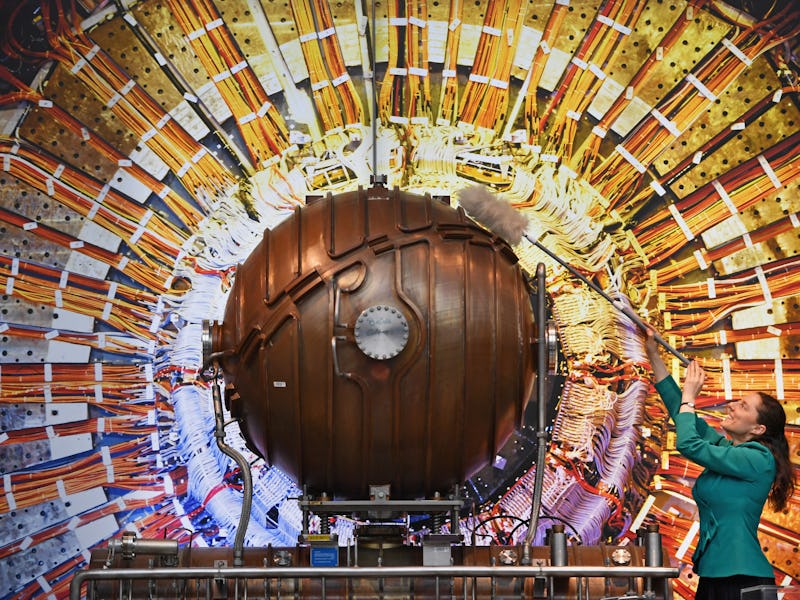Scientists Measure Antimatter for First Time by Firing Laser at It
Antihydrogen is a lot like normal ol' hydrogen, as it turns out.

It’s hard to imagine anything more sci-fi than shooting a laser at antimatter, and yet, here we are. Scientists at the European Organization for Nuclear Research, popularly known as CERN, located near Geneva, revealed on Monday that they had made the first-ever spectroscopic measurement of an antimatter atom by firing a laser at some antihydrogen.
The Big Bang created an equal amount of matter and antimatter, but almost the entirety of the universe as we know it consists of matter. Scientists don’t know why matter won out over antimatter, since the pair are really two sides of the same coin (albeit two sides that explode violently on contact). Studying antimatter is essential for researchers who want to find out why the universe exists the way it does, but, due to that whole “blowing up” thing, it’s very hard to do — making the new laser-aided spectroscopic measurement a big deal.
The ALPHA experiment, as it’s known, was documented in a paper published on Monday in Nature. First, the team in Geneva created some antihydrogen and encased it in a magnetic trap — a vacuum that prevented it from coming into contact with any matter and going kablooie. Then, after cryogenically cooling it, they fired off a laser at the antimatter atom.
Some complicated math.
Researchers then observed the way the light came off of the antihydrogen atom and compared it to normal hydrogen — the most common and best-studied atom out there. They found that the two opposites react pretty much the same way. Had they noticed any substantive differences between matter and antimatter atoms, the result could’ve totally upended physics as we know it.
As it is, though, the antimatter mystery continues, but this is an important first, and scientists will use this technique in an attempt to gain deeper insights into antimatter’s make-up.